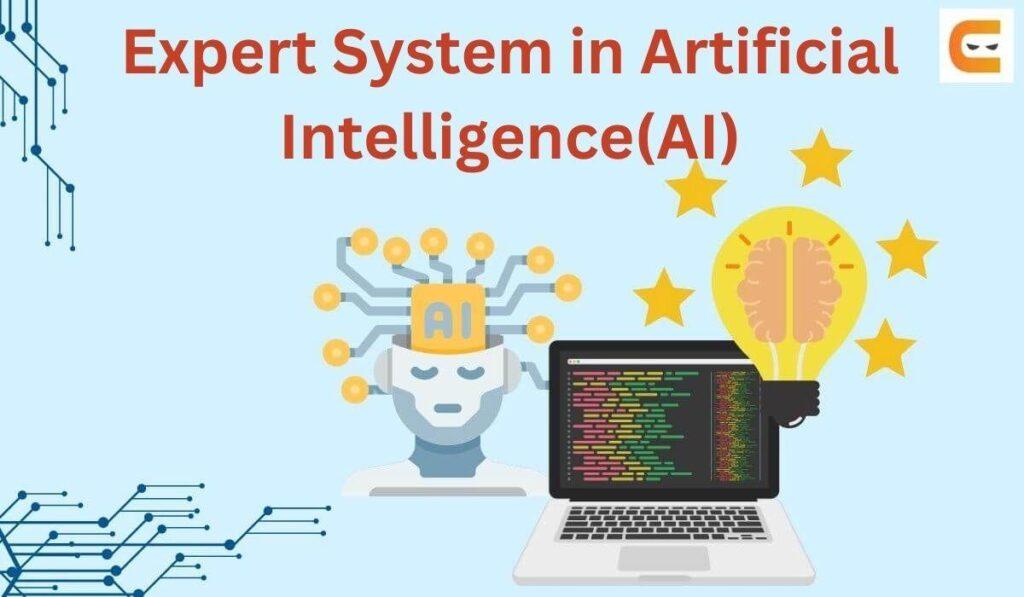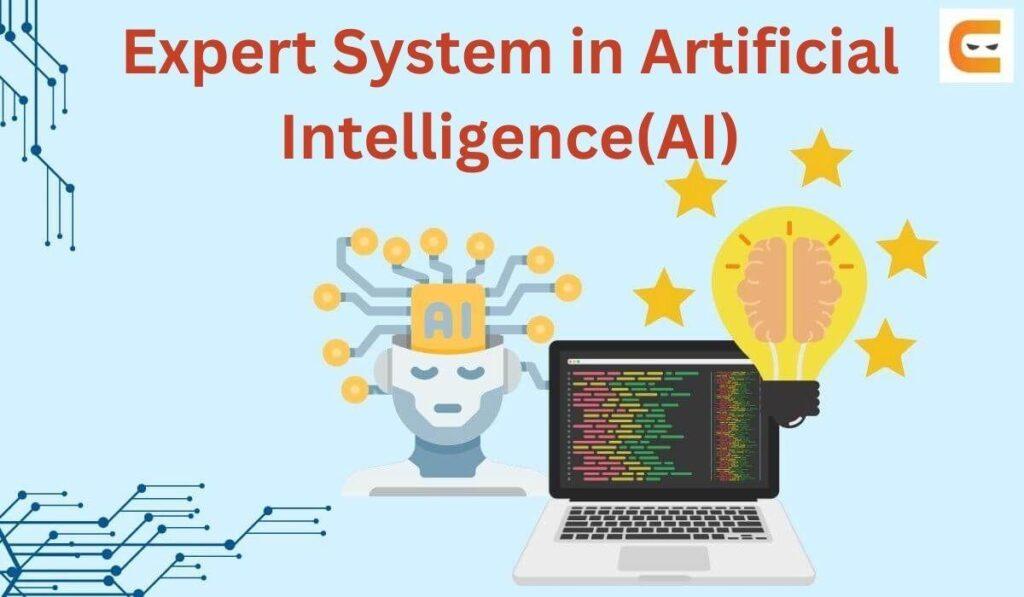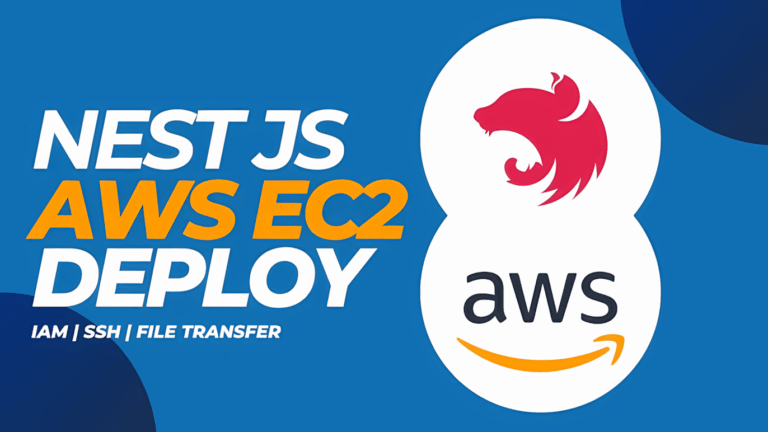An expert system is an interactive and reliable computer-based decision-making system that utilizes both facts and heuristics to solve complex problems. Positioned at the highest level of human intelligence and expertise, its purpose is to tackle the most intricate issues within a specific domain.

What is an Expert System?
Expert Systems are interactive, trustworthy computer-based decision-making tools that utilize data and heuristics to address challenging decision-making issues. It is regarded as representing the pinnacle of human knowledge and wisdom. An expert system’s job is to resolve the trickiest problems in a specific field.
Characteristics of Expert System
Follow are the characteristics of an expert system.
- High-Level Expertise: Expert systems offer a high level of expertise in a specific domain, providing efficient, accurate, and imaginative problem-solving capabilities.
- Timely Response: These systems interact promptly with users, delivering accurate solutions within a reasonable timeframe. The response time is typically faster than that of human experts.
- Reliability: Expert systems aim to ensure error-free performance and reliability in decision-making processes. They minimize the occurrence of mistakes and inconsistencies.
- Flexibility: Expert systems possess the ability to adapt to varying problem-solving approaches and scenarios. They can handle diverse types of problems and adjust their strategies accordingly.
- Effective Mechanism: These systems have an efficient mechanism for compiling and utilizing existing knowledge. They can gather, store, and utilize knowledge effectively to provide solutions.
- Handling Complexity: Expert systems are capable of handling complex decision-making problems. They can analyze intricate scenarios, consider multiple factors, and deliver optimal solutions.
Benefits of Expert Systems
Using expert systems instead of human experts has several advantages:
- Access to Expertise: Expert systems provide access to expert-level knowledge and decision-making capabilities, even in the absence of human experts. This ensures that organizations can leverage specialized knowledge to solve complex problems and make informed decisions.
- Consistency: Expert systems ensure consistent decision-making and problem-solving, avoiding variations due to human factors such as fatigue or personal biases. This consistency leads to more reliable outcomes and reduces the risk of errors.
- Efficiency: Expert systems can analyze vast amounts of data and provide quick and accurate responses, improving operational efficiency. They automate repetitive tasks, freeing up human experts to focus on more complex or strategic activities.
- 24/7 Availability: Expert systems can operate round-the-clock, providing assistance and guidance to users at any time of day or night. This continuous availability ensures that critical decisions can be made promptly, without delays due to human availability or time zone differences.
- Scalability: Expert systems can scale to handle large volumes of queries and data, making them suitable for organizations of all sizes. Whether it’s a small business or a multinational corporation, expert systems can adapt to meet the needs of the organization and its users.
- Knowledge Management: Expert systems serve as repositories of knowledge, storing valuable information and insights about specific domains. This knowledge management capability allows organizations to capture and preserve expertise, even as personnel change over time.
- Training and Education: Expert systems can be used as training tools to educate users and employees about specific topics or domains. They can provide guided learning experiences, quizzes, and tutorials to help users develop their skills and knowledge.
In conclusion, expert systems play a vital role in leveraging AI technology to emulate human expertise, enhance decision-making processes, and improve productivity across various domains.




